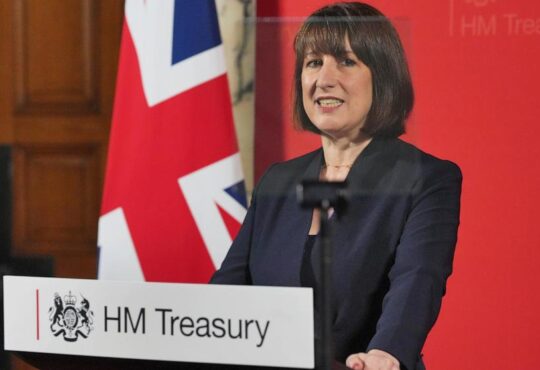
Good morning.
PacWest shares plummeted by 50pc in after hours trading in New York amid talks of a rescue for the US regional bank.
The bank has instructed boutique investment bank Piper Sandler to help it explore strategic options including a sale, according to Bloomberg. It comes after the Federal Deposit Insurance Corporation (FDIC) seized control of First Republic Bank on Monday before securing a sale to JP Morgan.
5 things to start your day
1) Stop vilifying high pay in Britain, City chief urges | Boardroom pay disparity between UK and US has ‘not received enough attention’
2) Coronation coverage to include anti-monarchist views, broadcasters say | Bosses pledge to be ‘representative’ of modern Britain
3) Fed raises US interest rate to 16-year high despite banking crisis | The decision to keep raising rates came despite weeks of turmoil in financial markets that has seen three US banks collapse in the past two months.
4) What is the US debt ceiling and what will it mean if it isn’t raised? | Government runs the risk of not being able to meet its public spending obligations
5) Airbnb encourages people to stay with strangers to save money on holidays | Holiday letting company returns to its roots with single-room rentals
What happened overnight
Wall Street stocks declined Wednesday after the Federal Reserve increased its benchmark interest rate by another quarter of a percentage point as widely expectedly, extending the central bank’s most aggressive hiking cycle since the 1980s.
The Dow Jones Industrial Average finished a choppy session down 0.8pc at 33,414.24.
The broad-based S&P 500 shed 0.7pc to 4,090.75, while the tech-rich Nasdaq Composite Index lost 0.5 percent at 12,025.33.
Bond yields retreated after Fed chair Jerome Powell signalled the central bank would adopt a wait-and-see approach to further rate rises after confirming a tenth straight increase.
The benchmark yield on the 10-year Treasury fell to 3.36pc from 3.44pc late Tuesday.
The two-year yield, which moves more on expectations for the Fed, fell to 3.88pc from 3.99pc.
By Thursday morning, global stock markets had sagged while the Japanese yen rose in reaction to the Fed’s policy statement and signs of stress at another American regional bank.
US bank PacWest Bancorp reported troubles overnight, reminding investors of the precarious health of some banks despite regulators’ assurances around containing the crisis that started with the collapse of Silicon Valley Bank and Signature Bank in March.
The Federal Reserve raised interest rates by a quarter of a percentage point and signalled it may pause further increases, giving officials time to assess the fallout from the bank failures, wait on a political resolution to the US debt ceiling, and monitor inflation.
MSCI’s broadest index of Asia-Pacific shares outside Japan was flat, in trade thinned by Japanese holidays this week.
China’s benchmark index opened weaker as mainland markets returned after their May Day holidays but rebounded, led by state-owned firms.
Investors are increasingly convinced that central banks across Asia will follow the Fed in swiftly closing out this policy tightening cycle and are bracing for interest-rate cuts later this year.
Australia, which serves as a proxy for risk sentiment across the region, snuck in a surprise rate hike less than 40 hours before Powell & Co. delivered what very well could be their last of this cycle. Overnight index swaps show investors expect a quick end to the Aussie hikes.
Malaysia notched a one-and-done rate increase for this year less than a half a day before the Fed. And policymakers in the Philippines last week said they’re ready to lower their inflation forecasts, which means less pressure to stay on the tightening path.
For Indonesia and South Korea, which have already paused their hiking campaigns, the cuts could be nearer. Bloomberg Economics sees Indonesia cutting before year-end amid a resilient rupiah, and the country’s 2-year bond yields fell in Wednesday’s session to their lowest since February. Traders bet Korea could cut within 12 months.
There is an exception: New Zealand’s central bank is seen hiking rates again on May 24 before pausing for the remainder of 2023.






